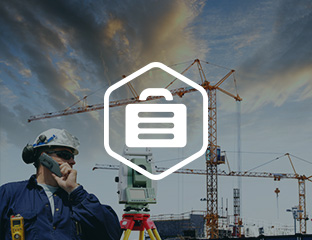As the global shipping industry undergoes a green transformation, Ningbo Zhoushan Port, the world's fourth-largest and China's leading bunkering port, is making significant strides in green fuel development. The latest updates on these initiatives were highlighted at the "Linked Elements: Specialty Shipping Services Development" sub-forum during the 2024 Maritime Silk Road Port Cooperation Forum.

Deputy Director of the Zhoushan High-Tech Industrial Park Management Committee, Cui Yiling
Cui Yiling, Deputy Director of the Zhoushan High-Tech Industrial Park Management Committee, emphasized the government's strong focus on green marine fuels as part of Zhoushan's efforts to establish itself as a Northeast Asia Bonded Fuel Oil Bunkering Center. She noted that the government is formulating a series of short-term, medium-term, and long-term plans to address the opportunities and challenges posed by green marine fuels. In the short term, biodiesel and LNG are expected to maintain a significant market share in China, with Ningbo Zhoushan Port already capable of regular bunkering operations for these alternative fuels.
In June 2023, Ningbo Zhoushan Port marked a milestone with its first bonded LNG bunkering operation for an international vessel. The MV HAI YANG SHI YOU 301, China's largest domestically developed LNG bunkering ship, supplied 9,400 cubic meters of bonded LNG fuel to the MV CMA CGM UNITY using a ship-to-ship transfer method. Two months later, PetroChina International LNG Bunkering Co., Ltd.'s Zhoushan branch supplied 2,200 tons of bonded LNG fuel to the 210,000-ton dual-fuel bulk carrier MV MOUNT COOK at Qushan's temporary anchorage. This achievement made Ningbo Zhoushan Port the first in China to offer offshore ship-to-ship LNG bunkering services.
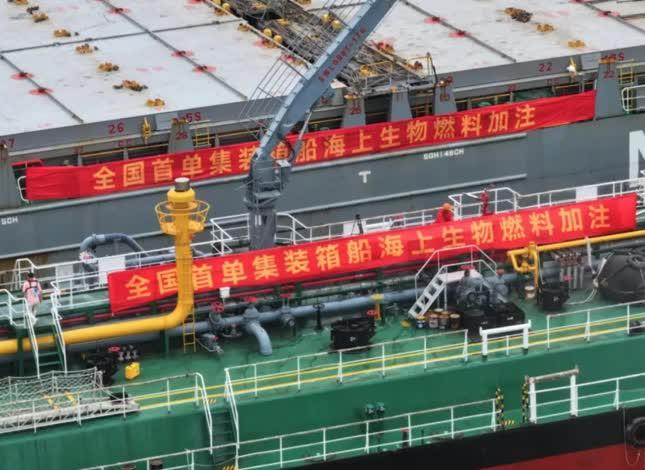
On October 9, 2023, the bunkering vessel MV SIJIE 21 successfully completed the first offshore bonded biofuel bunkering operation for an international container ship, the "Xin Mingzhou 60," at Zhoushan's Mazhi Anchorage. This event marked the successful launch of offshore biofuel bunkering for international container vessels in China.
Cui further mentioned that to enhance the economic viability of biofuels, the government is actively exploring blending policies to maximize the use of domestic resources and provide cost-effective products for shipowners. This policy breakthrough is expected to inject new energy into the green marine fuel market.
Zhejiang Seaport International Trade Co., Ltd. (Seaport International Trade), a key player in the green fuel development at Ningbo Zhoushan Port, has been deeply involved in establishing the green marine fuel bunkering center and green port initiatives. Li Na, Deputy General Manager of Seaport International Trade, highlighted that the port has achieved regular LNG bunkering operations, with coverage across major container terminal areas. The company has also obtained ISCC certification for biofuels and carried out the first offshore biofuel bunkering operation for a container ship in China. With the upcoming implementation of relevant policies in the Zhejiang Free Trade Zone, regular and competitively priced biofuel bunkering services are expected to commence early next year.
In the area of green methanol, Ningbo Zhoushan Port is actively advancing its initiatives. Cui stated that Zhoushan maintains close contact with the Methanol Fuel Association and potential green methanol producers nationwide. The first methanol bunkering barge meeting maritime refueling standards has already been put into operation in Shanghai, and Zhoushan is accelerating the construction and retrofitting of methanol bunkering barges. The government is also focusing on resolving methanol bunkering pathway issues, urging suppliers to prepare for commercial operations.
Ningbo Zhoushan Port's push for LNG, biofuel, and green methanol bunkering is part of a broader strategy to offer diverse green fuel options. Currently, container shipping companies are actively pursuing green energy transitions, with green methanol emerging as a popular choice. Methanol fuel orders have surpassed LNG in new shipbuilding contracts, driven by its long-term potential. Despite LNG's continued dominance as a clean fuel, many shipowners remain uncertain about their green fuel choices, although the shift to green fuels is inevitable. Different shipowners are adopting various green energy strategies based on their specific needs and routes, creating both challenges and opportunities for suppliers.
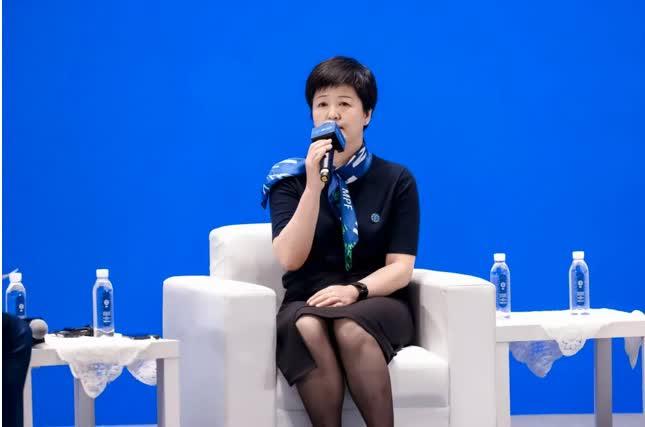
Deputy General Manager of Zhejiang Seaport International Trade Co., Ltd., Li Na
According to the latest data from DNV AFI (Alternative Fuels Insight) as of May 2023, there are 1,052 ships worldwide that have chosen LNG as an alternative fuel, with approximately 274 of these being container ships, 100 of which are already operational. In contrast, there are 304 methanol-fueled ships, with container ships dominating this segment—179 vessels, six of which are in operation. From January to May 2023, new orders for alternative fuel ships reached 127, a 55% increase from the same period last year, with 70 methanol-fueled ships accounting for 55% of the total orders.
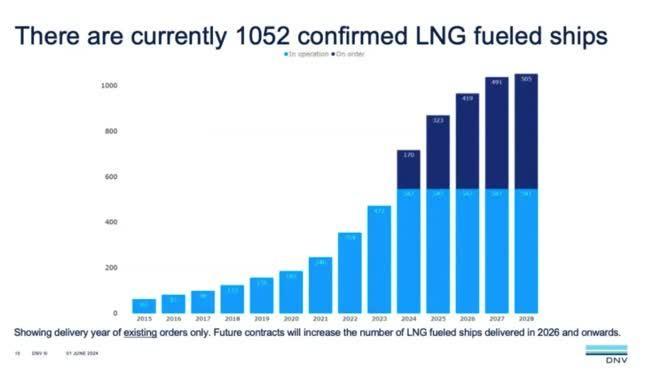
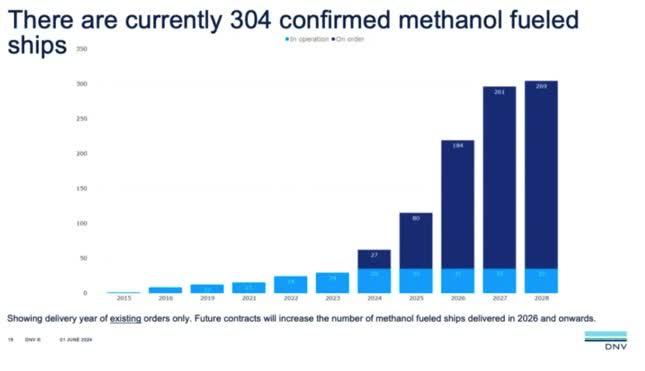
The diverse green fuel options present a "sweet burden" for ports. Zou Junshan, Chief Representative of the Port of Rotterdam in China, stated that shipowners can choose between methanol and LNG, while ports must provide various fuels. Citing the Chinese saying "All guests are welcome," he emphasized that ports must meet customer needs.
Clarkson data shows that by 2023, approximately 188 ports worldwide can provide LNG bunkering services, with another 82 locations planned or under active preparation. Additionally, about 10 terminals offer methanol bunkering services, with 11 more under development.
As Europe's energy hub, the Port of Rotterdam is actively promoting the research and application of various fuels, including LNG, methanol, ammonia, hydrogen, and electricity, to ensure comprehensive fuel options for shipowners. Zou mentioned that hydrogen will become an important topic in the future, although its widespread application will take time. The Port of Rotterdam is committed to ensuring a stable supply of future marine fuels by encouraging and guiding enterprises to invest in expanding new energy production facilities.
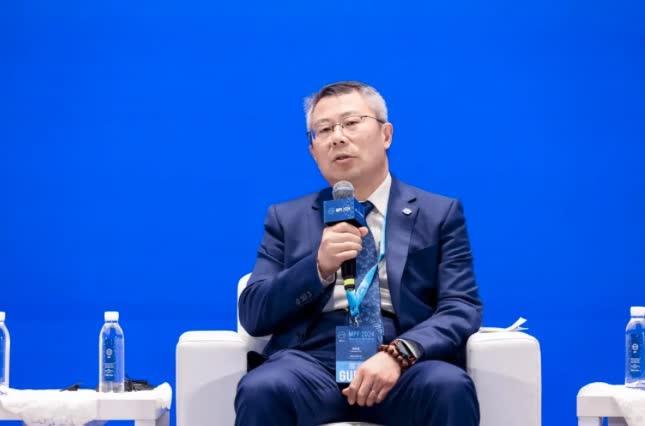
Chief Representative of the Port of Rotterdam in China, Zou Junshan
Commenting on the development of the green marine fuel bunkering center at Ningbo Zhoushan Port, Li Na stated that ports are not only logistics nodes but will also become key hubs for green methanol. Green methanol requires full lifecycle certification, and ports will play a crucial role in integrating upstream and downstream resources, from production and transportation to storage and final bunkering.
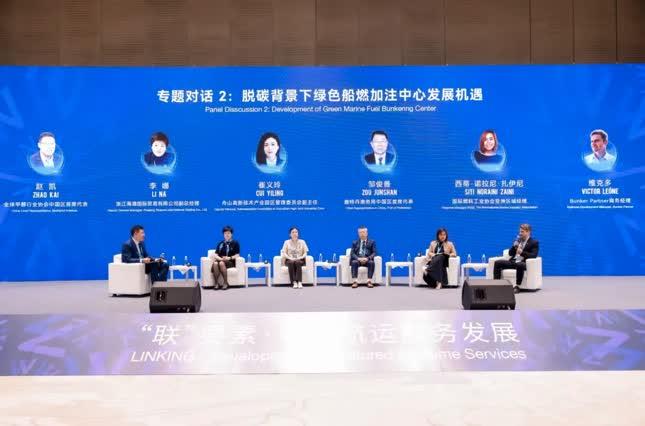
Zou concluded that safety, energy sources, and international cooperation are key factors. First, safety is paramount, as there are still many uncertainties with new energy sources. Second, attention must be paid to future energy supply issues to ensure sufficient resources and clear supply paths. Finally, international cooperation is essential to establish consensus on standards, certificates, regulations, and processes, ensuring smooth collaboration and mutual recognition across borders.
Source: MarineCircle

